Euro 2024 draw arrives with a twist amid German football’s rising tension
Euro 2024 highlights the best and worst parts of Uefa and modern European football but, as Miguel Delaney outlines, the tournament comes at an intriguing time for the host nation

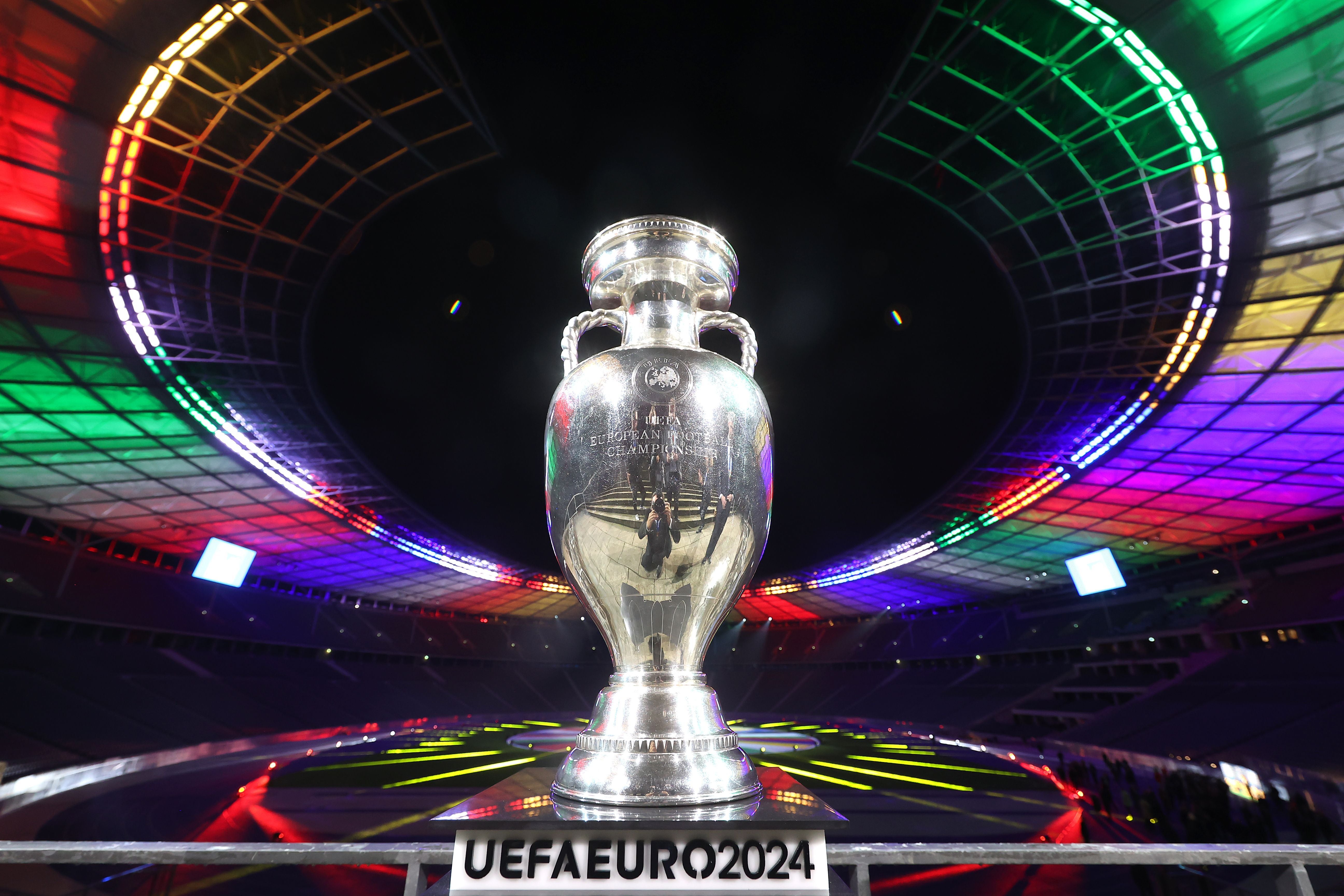
As legends like Gianluigi Buffon and Miroslav Klose start to decide what Euro 2024 will look like, most of its audience will be watching the Premier League and the other domestic competitions. That will of course change by June, but 5pm Saturday is a strange time for a draw, that maybe touches on the strange place both the competition and Uefa are in right now.
It’s not even like this draw holds the anxiety supporters used to associate with such events for major nations like England. That isn’t down to how good Gareth Southgate’s team are right now, either. No matter what names come out, over half of the competition will be spent eliminating a third of the field. The 36-game group stage will see 16 teams out of 24 go through to the next round.
It is literally harder to get knocked out. That has of course been the case for most of the qualification campaign, a problem when a competition has been so expanded. It almost feels like it would be better to just finally push the Euros out to a more symmetrical 32 teams and considerably shorten the way you get there. As it is, Buffon and Klose will almost be deciding another preliminary stage in Hamburg’s Elbphilharmonie concert hall on Saturday. It should be acknowledged that Euro 2020 was immediately an entertaining tournament but it was still lopsided and it’s hard not to put part of the emotion down to the fact it was one of the first major events with crowds after Covid.
Before it, the first 24-team Euros in 2016 had mostly been a drab competition in terms of the football, characterised by low-scoring games where a series of smaller national sides played defensively reductive tactics. Wales, still having to go through the interminable play-offs for this, were one of the exceptions. They still wistfully talk about their time in France eight years ago.
It was certainly difficult to fault the setting, and it is much the same with this.
That is why Euro 2024 is a bit of a watershed. It is the first “traditional” tournament - to use the words of one federation head - in eight years.
In the time between, there has been a World Cup in Vladimir Putin’s Russia. While anyone who was there would say that did an important job of reminding me people the country and its culture are always different to the state, events since have meant it will now be seen as a modern 1936 Olympics. The Russian national team’s absence from all this due to the suspension for the invasion of Ukraine are a reminder of that. Resentments still linger within Uefa over a recent attempt to bring back youth sides.
Euro 2020 was then a continent-traversing competition, that the governing body have vowed never to do again. Aside from obvious environmental concerns, to go with the Covid restrictions, it diluted that sense of a nationwide party that comes with more self-contained tournaments.
Not that there was much of a party in Qatar for the World Cup that followed. Very few fans travelled, and the legacy of that tournament commonly perceived is a litany of migrant labour abuses.

None of this is to say western Europe is perfect, but you only have to compare the atmosphere around Doha with that of Germany for the 2006 World Cup.
That is the memory that frames these Euros. Even a relative lack of excitement about the draw is tempered by the anticipation of a similarly great summer next year.
That is where there is a little twist to this, though.
Germany now finds itself on the more complicated other side of the process that led to that joyous Sommermarchen of 2006.
Then, a national football talent programme combined with a football construction boom, to foster a love for an exhilarating new team as well as a sense of reunified nation finally coming together after the fall of the Berlin Wall.
Now, some of it is coming apart.
Most immediately, the team hasn’t been good. None of those tournaments since 2016 have seen Germany get past the last 16, and the two World Cups brought elimination at the group stage. The old certainties about their national team have gone. You have frequently been able to write them off. You can’t even write about the coming talent in the same way, as Germany has been engulfed by debate over the type of players they produce. Federation officials have been sent abroad to figure out how you produce number-nines again. Julian Nagelsmann, for all his talented sophistication, isn't necessarily a rallying coach.
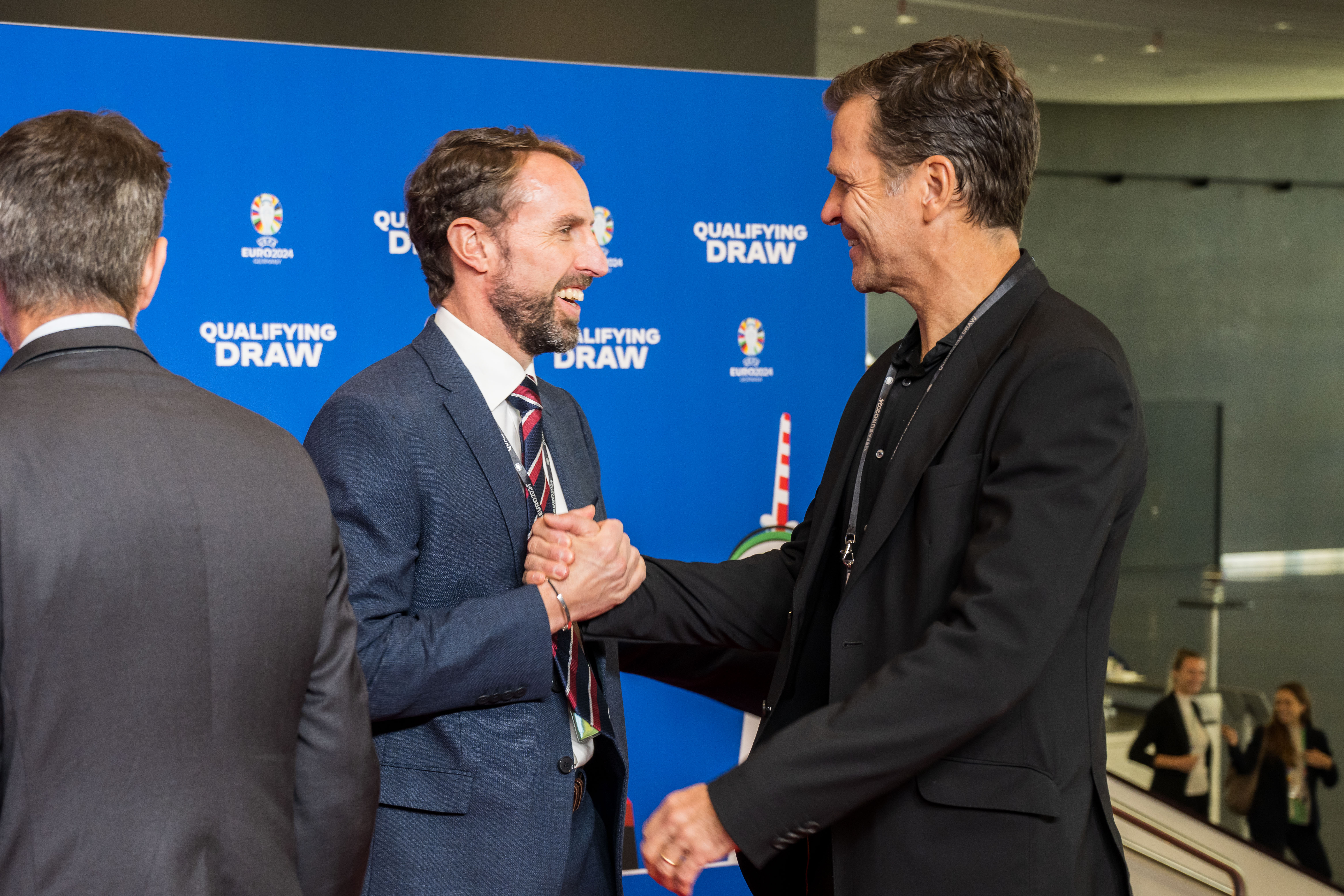
Much more seriously, this has fed into some distasteful national debates about immigration and national identity, that has touched previous stars like Mesut Ozil. It is also known that there was tension regarding the decision to make a gesture over the rainbow armbands in Qatar. Far from the happiness of 2006, there are now fears of hooliganism in the build-up to the competition, fired by incidents like Eintracht Frankfurt fans before last season’s Europa League final.
To bring it all full circle, there is also tension between the Bundesliga and the national federation, when it was their own unification under one umbrella that was seen as crucial to rebooting German football before 2006. It has got to the point where the 24 qualified nations may not even use Bundesliga training grounds.
And yet, it’s still Germany. There’s still a talent like Jamal Musiala. It’s still so easy to get around. The country remains blessed with the kind of infrastructure that most other nations would dream of, so they could host a tournament just as easily.
It will be hard for Uefa not to put on a show.
This is precisely where there is also pressure on Uefa, however, to feed into the hint of growing dissatisfaction against Aleksander Ceferin.
The governing body has recently found it difficult to get events right. While Euro 2020 was initially organised relatively smoothly, the final at Wembley was a near-disaster. The following year’s Champions League final in Paris was even worse, and everyone was fortunate there wasn’t loss of life. The chaos around this year’s showpiece in Istanbul, then, showed a lot of lessons hadn’t been learned.
It summed up a sense that the European body, previously a model of that sort of technocratic competence, wasn’t properly anticipating obvious problems.
This all comes amid growing fissures in the political infrastructure.
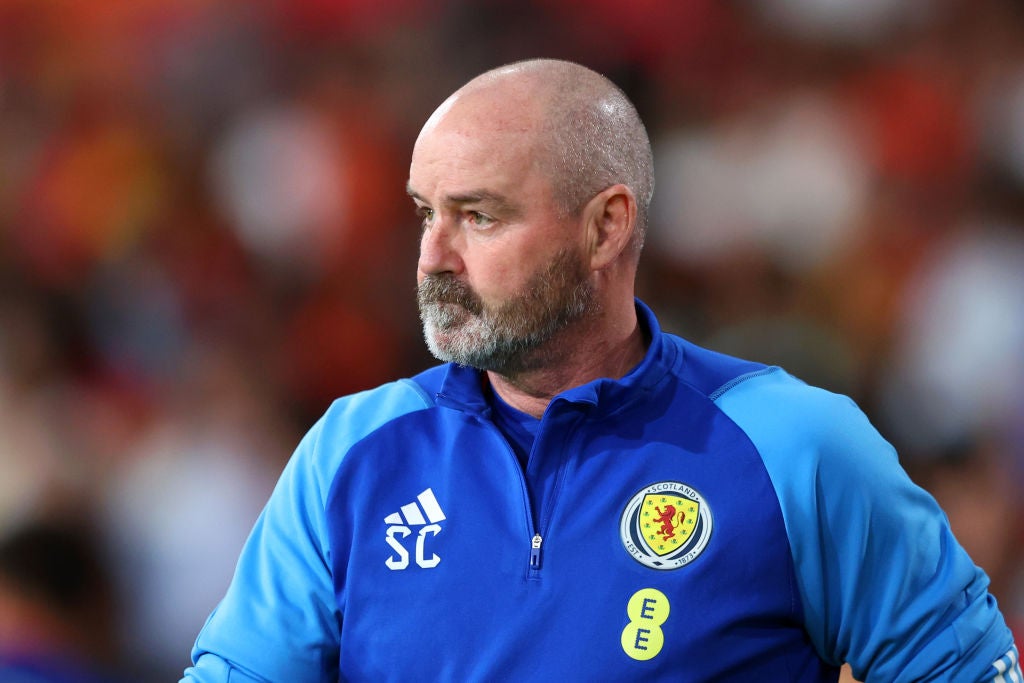
There is a growing belief that Ceferin has been too self-satisfied since the victory over the Super League in April 2021. That crisis was precipitated by problems that came from financial disparity in European football, an issue that has got worse over the Slovenian’s seven years. The 2024 Champions League reforms are meanwhile commonly viewed as just institutionalising the Super League in another way. Ceferin is also being privately criticised by complacent reactions to huge issues like multi-club ownerships and the threat of the Saudi Pro League.
It is known that the subject of whether the kingdom’s clubs would ever come into the Champions League was at least raised in informal circles near the top of Uefa. That prospect was rejected, over a fear of a LIV Golf situation.
Saturday’s draw will bring all of the federation heads together, and a lot of private chats about all of this. Many are currently raising questions over whether Ceferin will pursue another term in 2027. The rules stipulate that any federation president can only serve three terms, and Ceferin came in halfway through one after the fall of Michel Platini. Other executives within European football are already talking about how it would be "bad governance" if he sought another term and tried to stay in power.
If this seems a long way from the opening game in Munich on 14 June, it has influenced international football.
The concentration of resources in pockets of western Europe has had an effect, as have Uefa’s policies on development.
It is a slightly strange era in international football, where there is a huge middle class in terms of quality and not many truly elite sides. France and England are the obvious favourites, and will be the two teams everyone else wants to avoid.
That landscape may change in the long months until the Euros start, and good sides can quickly develop. That was witnessed with the defending champions, Italy, in 2021. The current landscape is still what everyone travelling to Hamburg is surveying right now.
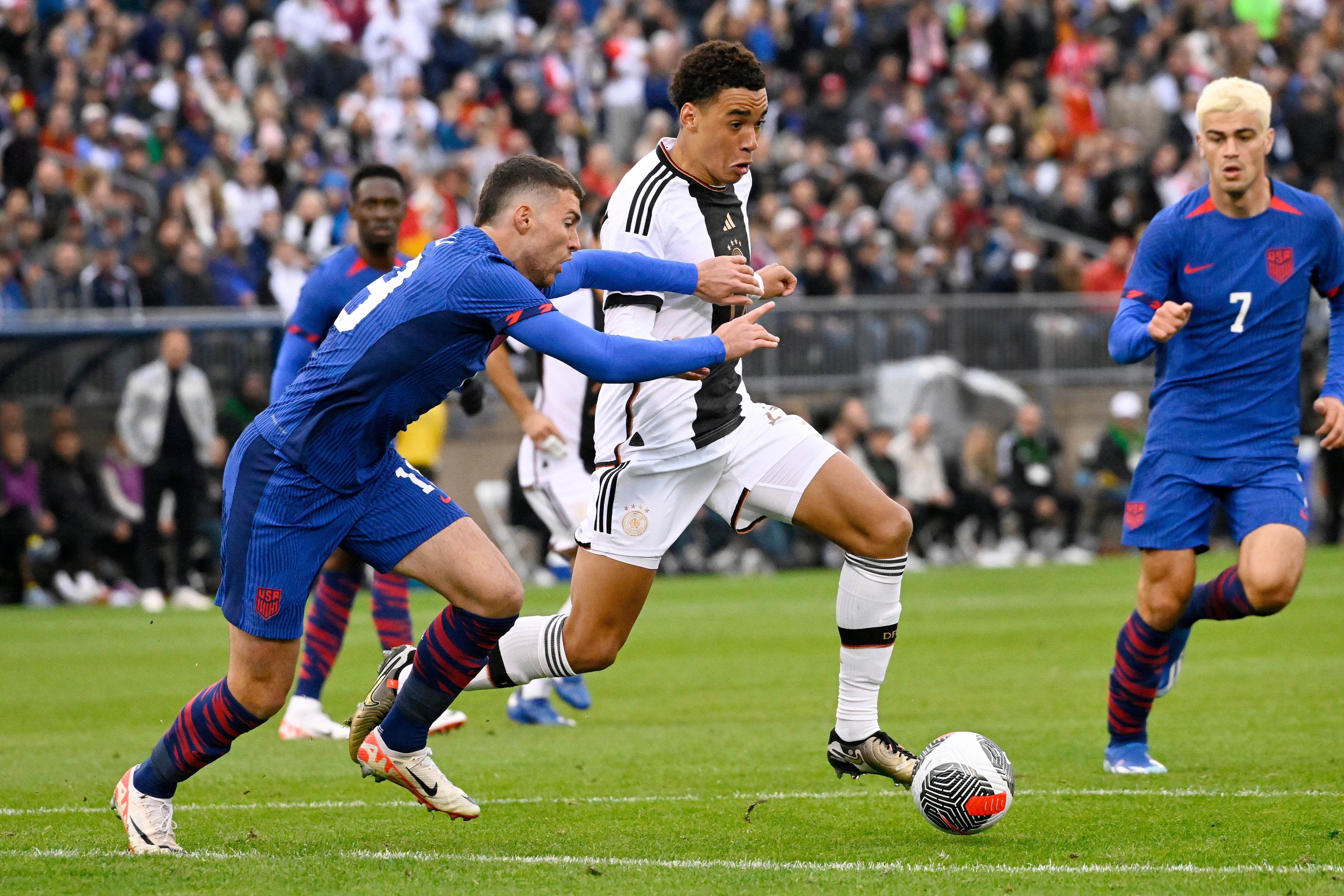
As it is, a worst-case group for England would probably be Denmark, Netherlands and Italy. A best case might be Albania, Slovenia and a play-off winner.
For Scotland - or potentially Wales after their play-offs - the hope will be to avoid France, Denmark and Italy but they might fancy Belgium and Albania.
England should still get through regardless. Southgate has bigger ambitions. The main consequence of Saturday will be sorting logistics, as well as travel between games and their first-choice base in the Black Forest.
Again, it is still Germany, though. That just comes with a few more complications than before.
Join our commenting forum
Join thought-provoking conversations, follow other Independent readers and see their replies
Comments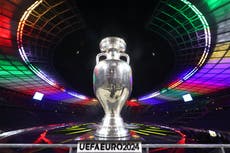


Bookmark popover
Removed from bookmarks